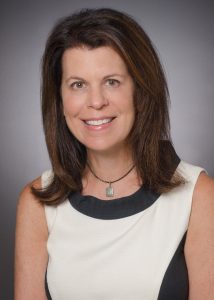 Advocate for yourself and know your value; don’t sell yourself short, Wendy Cohen advises associates.
Advocate for yourself and know your value; don’t sell yourself short, Wendy Cohen advises associates.
Cohen states, “You have to ask for what you want and recognize what your contribution is; then refuse to feel diminished, intimidated or not as worthy as your male counterparts just because you may have different demands on your time and elements of your life to balance.”
Cohen never conceded her talents and thus was able to parlay a temporary downshift with a part-time schedule into becoming a partner.
A Mutually Beneficial Arrangement Leads to Career and Firm Success
Directly from law school Cohen started at her current firm’s predecessor, Rosenman & Colin LLP, which merged with Katten in 2002. She joined the firm’s then-corporate department, and during her second year began working with Fred Santo, a partner who specialized in financial services. In addition to public commodity deals, she earned a lot of experience with private funds, now commonly known as hedge funds.
But even though she was a well-regarded associate on an upward trajectory, she removed herself from the partner track to focus on building a family, paring back to four days a week.
After having her twins in 1995, Cohen came back to work three days a week when they were six months old. While she enjoyed her client work, the lack of technology at the time made it too challenging to effectively juggle home and work, and when she became pregnant with her third child, she left the firm again at the end of 1996.
In 2001, Cohen reached back out to her former partner to see if she could work on a project basis; he welcomed her back and she worked as a consultant, billing time directly to the client. After ramping up to working in the office three days a week, it wasn’t long before the firm realized that they wanted to formalize the arrangement, and they offered her a partnership.
As her kids grew and her available time expanded, Cohen gradually extended her days in the office. In 2011 she was named a partner, and two years later she became a capital partner. “I was so proud to become a partner while balancing time in the office and at home,” she says, adding that the arrangement has been mutually beneficial. “Fred is retiring at the end of this year, but I will be able to take over those clients with whom I have worked for 25 years. The firm maintained their investment in me, and now they have the benefit of retaining clients with a seamless transition.”
And as she says, she now is able to devote all her time to the firm. “I provide a tremendous value-add that they would have missed out on had they not allowed me to come back part-time; and at the same time I appreciate the value they saw in me. We all would have lost if they hadn’t been committed to this non-traditional arrangement.”
As current co-chair of the financial services department, Cohen continues to work with clients, including advising her first private investment fund that’s investing in cryptocurrency, and also is focused on business development and lateral hiring.
Perspective That Comes With Experience
Looking back on her career, Cohen appreciates how things change when you don’t even notice. “At some point you realize life is finite, and not to sweat the small stuff—and as they say, most of it is. I am glad I spent time with my kids when they were growing up…I certainly didn’t rush life away during that chapter, but I also didn’t necessarily appreciate that it would change the way it has.”
That wise perspective is one she is able to share with younger professionals as they decide how to forge their paths. While she feels fortunate that firm management allowed her the bandwidth and flexibility she enjoyed, she realizes that although it’s better than it used to be and more common for attorneys to experience balance, it’s not yet where it should be.
“My path should not be anomalous; it should be available to all women who choose to downshift, without being viewed as less successful, committed or capable,” Cohen says.
While other women partners she works with might have taken different paths, she thinks it’s important for all associates to see that there’s not one standard for reaching the goal of partner. “Katten management has been making great strides, but as an industry, we still have work to do for women to realize there is value to their contribution not only for themselves individually, but also for the whole firm.”
And she advises women who are her peers to realize that although they might have had to make sacrifices to achieve their success, they shouldn’t hold that against the new generation. “We can nurture our younger women attorneys in different ways and allow them to decide for themselves the best way to provide value, even if it’s different from what you did.”
But she realizes that there are other ways that being a women can be tenuous. For example one of her clients is a seed investor in Glam Squad so at a recent meeting of 100 Women in Finance, where she co-chairs the Legal Peer Advisory committee, two of the founders talked to the group, then stylists came and “glammed” them.
Although Cohen grappled briefly with whether that would undercut the group, she realized second guessing the event was unreasonable. After all, they have a business model that is fascinating and substantive, and there’s nothing wrong with looking your best and feeling more confident. “We can do things our own way. It doesn’t diminish us; it’s just a different way of networking and bonding.”
She also is working on hosting a panel in January sponsored by 100 Women in Finance with the former managing director of a large private equity firm speaking about women on boards and how to advocate for board seats.
Cohen is active in Katten’s “Women Leadership Forum,” recently attending a women’s networking event at the Knicks game. “The firm is very committed to diversity, and expends a great deal of energy and time nurturing women,” she says adding that the firm is “Mansfield Certified” for excellence in diversity.
In her spare time, Cohen also volunteers closer to home, as the past president of the Jewish Federation in Westport. And she loves to spend time with her husband and now- adult kids—travelling and eating and ideally combining the two, she laughs.
 We would like to wish all our readers a safe and healthy and fun festive season.
We would like to wish all our readers a safe and healthy and fun festive season.
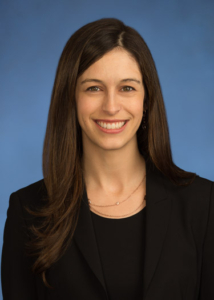 To progress in your career, you have to get out of your comfort zone, says Goldman Sachs’ Miriam Wheeler, who was recently named a partner at the firm – a role that will come into effect in the New Year.
To progress in your career, you have to get out of your comfort zone, says Goldman Sachs’ Miriam Wheeler, who was recently named a partner at the firm – a role that will come into effect in the New Year.
 Advocate for yourself and know your value; don’t sell yourself short, Wendy Cohen advises associates.
Advocate for yourself and know your value; don’t sell yourself short, Wendy Cohen advises associates.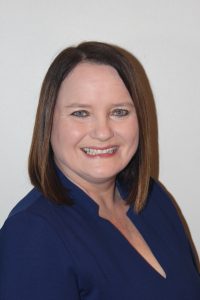 Having served in customer-facing roles for more than 20 years, WEX’s Clare Murphy has learned an important truth.
Having served in customer-facing roles for more than 20 years, WEX’s Clare Murphy has learned an important truth.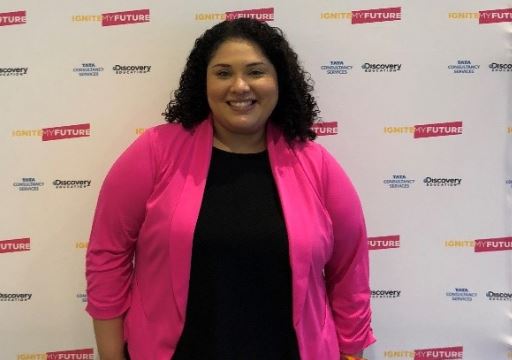
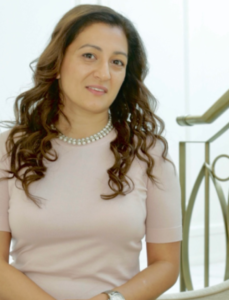 “My proudest achievement is that I have grown my entire career from grass roots level, with fearless determination.” says PwC’s Sunaina Kohli.
“My proudest achievement is that I have grown my entire career from grass roots level, with fearless determination.” says PwC’s Sunaina Kohli.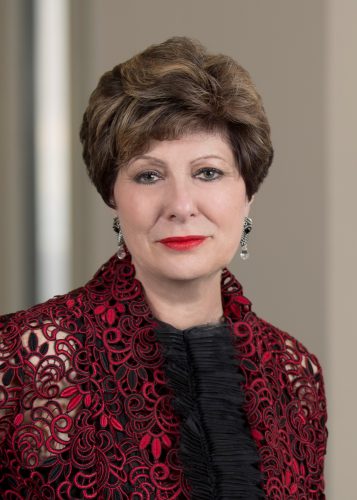 Have optimism and be proactive, Marci Eisenstein advises young women.
Have optimism and be proactive, Marci Eisenstein advises young women.